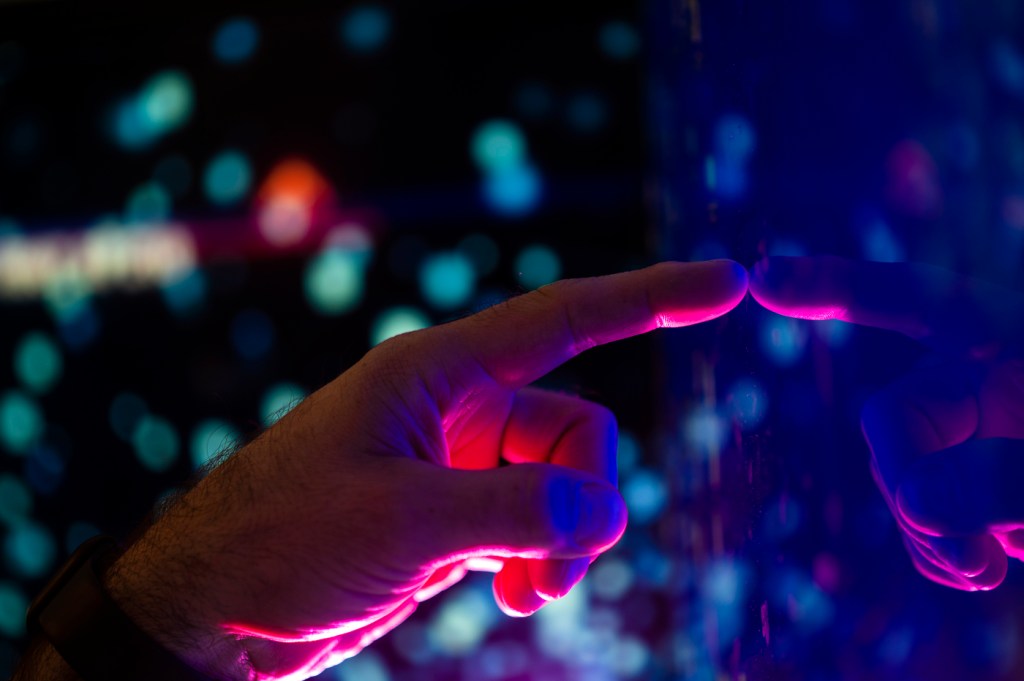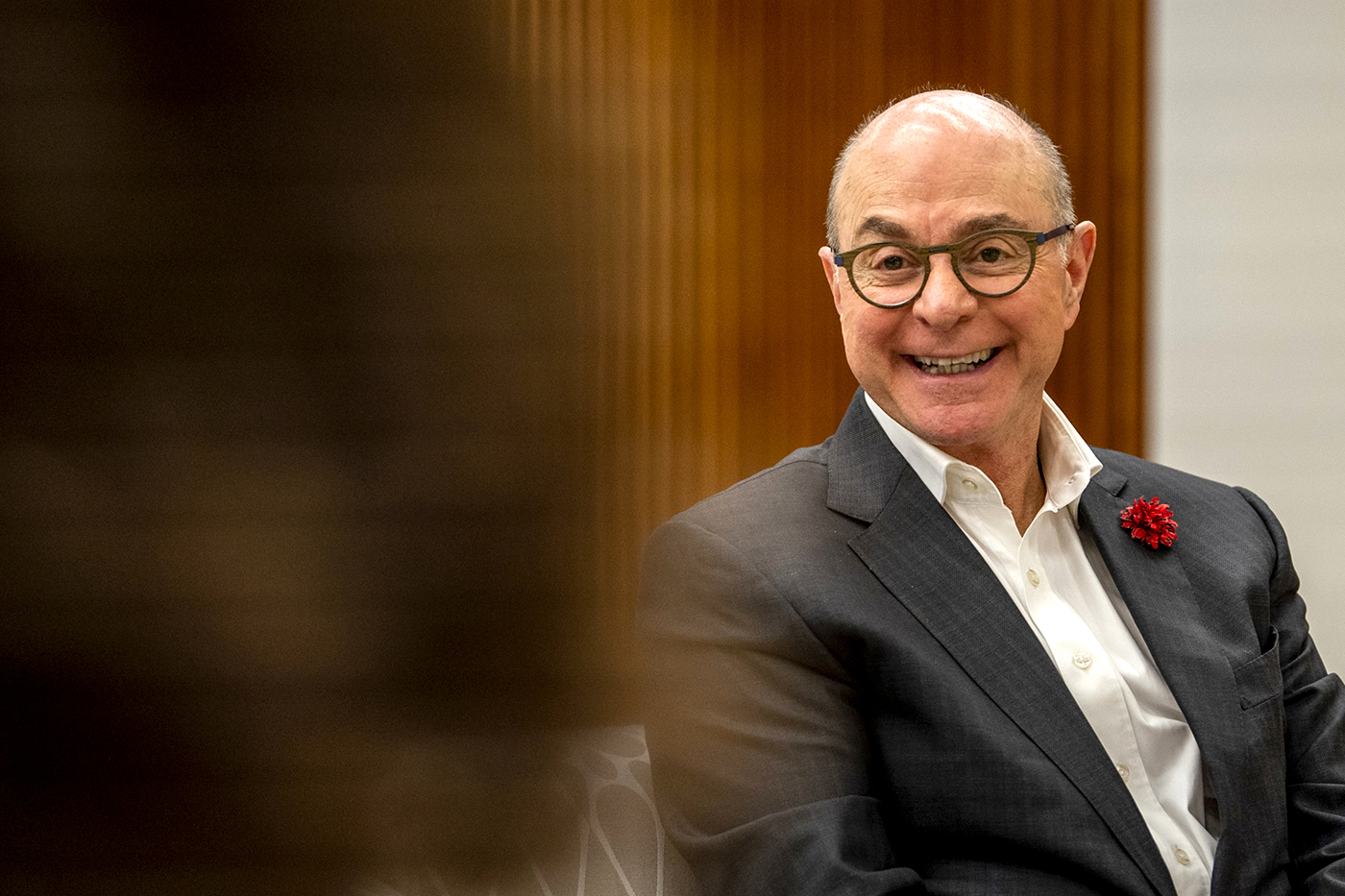‘We are a center of experimentation and innovation.’ President Joseph E. Aoun addresses buzz around generative AI

The development of artificial intelligence tools, like the ever-popular ChatGPT, has raised many questions on how to safely deploy these shiny new technologies. Rather than turn away from their potential, Northeastern President Joseph E. Aoun says we need to embrace innovation.
Those questions served as the foundation for a discussion this week between The Chronicle of Higher Education and leaders in higher education titled, “AI and Higher Ed: the Leadership Perspective.” The event kicked off with a Q&A between the publication’s assistant managing editor, Ian Wilhelm, and Aoun.
“Innovation is often scary,” Aoun said when asked about whether there ought to be specific regulations applied to the budding technology—and whether Northeastern has any idea what those rules should look like.

“I would not start with the regulations,” Aoun said. “You cannot slow down an innovation, and we cannot react to an innovation by being protectionist.”
Concern over the pace of AI development began compounding in recent months in response to the widespread use of ChatGPT and other generative AI products. Those concerns run the gamut from the explicitly tangible—such as the way chatbots extract people’s personal information when scraping data online—to the more nebulous and unspecified, such as those put forward by detractors in a recently proposed six-month moratorium on the technology.
Chief among those concerns is the possibility that, without careful planning and preparation, human beings could create a “superhuman” intelligence—the likely outcome of which would be an AI that “does not do what we want, and does not care for us nor for sentient life in general,” writes Eliezer Yudkowsky, an AI writer and researcher.
Asked about the moratorium, which received backing from billionaire entrepreneur Elon Musk and Apple co-founder Steve Wozniak, among others, Aoun asserted that deep societal reflection over the implications of AI-based technology is already underway. And as tools such as ChatGPT are already being scrutinized by students and researchers across higher ed, he sees much of the chatter surrounding the moratorium as overblown.
That’s not to say that there isn’t a need for some serious thinking around safety and the ethical implementation of these technologies, he added.
“I think banning ChatGPT or banning AI from the classroom or from research is not something we want,” Aoun said. “What we want is to understand the tool, the limitations of the tool, and how it can be used. After all, we are a center of experimentation and innovation. Let’s not be scared.”
For Aoun, the extensive, almost voguish catastrophizing over AI in this moment is reminiscent of the anxieties that arose in response to the household computer and the invention of the internet.
“To talk about banning ChatGPT is like what happened when the internet first started,” Aoun says. “Our colleagues then said that students should not use information from the internet to write their essays or conduct their research. Now we laugh at that.”
The Q&A came a day before Northeastern faculty met on the university’s Boston campus for a two-hour symposium exploring the ways generative AI tools are already being put to use in the classroom, in the workplace and in health care.
Tanner Stening is a Northeastern Global News reporter. Email him at t.stening@northeastern.edu. Follow him on Twitter @tstening90.





